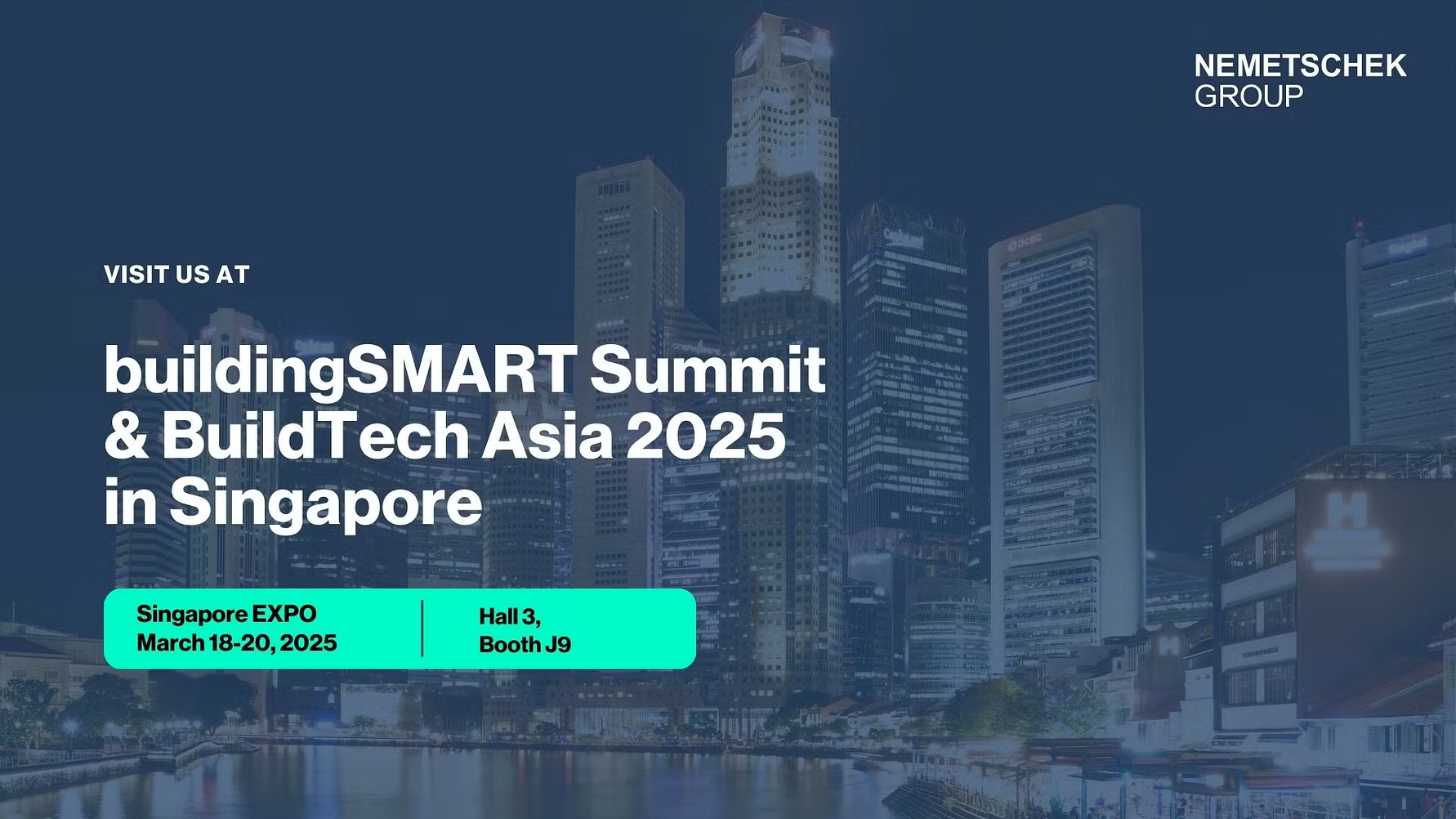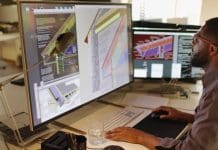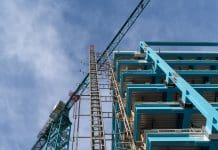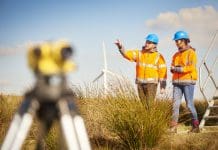We spoke to Elizabeth Kavanagh, senior people & change consultant at PCSG, about the importance of exploring the human side of digitalisation in the built environment
This year DCW is launching its brand-new People & Change Theatre, which features sessions exploring the human side of the digitalisation of the built environment.
Over the years, DCW has focused a lot on the technology, but often in the excitement of new ideas the people aspect of change has been left behind. In truth, it’s perhaps the most important part.
It’s something that friend and supporter of the show Elizabeth Kavanagh has spoken about at DCW many times. Kavanagh is senior people & change consultant at PCSG and the founder of the Behaviours4Collaboration group.
Kavanagh approached DCW about a theatre dedicated to people and change at the show.
We spoke to Elizabeth to find out more about her work and why the topic is so important.
Tell us a bit about your background and your role at PCSG
My first degree is in Psychology and during my HR career in the construction sector, I became really interested in digitisation. Back when I was leading the Revit training for our firm, I put myself through the course I organised, so my “AHA moment” came when I realised that digitisation changes relationships.
As a part of the BIM movement, I realised that what we want from our teams in terms of collaborative behaviours was not yet defined. That’s when I set up Behaviours4Collaboration and developed a tool that defines the behaviours that are needed to collaborate. I’m now enjoying facilitating collaborative relationships and this is where my team coaching skills are really useful.
I’m now a senior people and change consultant at PCSG enabling change and facilitating collaboration within alliances and JV’s. I really enjoy enabling change by developing the right mindset and culture to enable digital adoption. I coach high performing collaborative teams through workshop design and facilitation alongside individual and team coaching.
A key part of your role is helping organisations to build high-performing teams with collaboration at their core. Understanding people and their motivations is critical. Is this something you were naturally inclined towards?
I have always been interested in listening to people and understanding what they are good at, so it was natural that I take up a coaching role as I love to support people to become their best selves.
What made you suggest a dedicated People & Change Theatre at DCW?
I suggested a dedicated People & Change Theatre because people tell me that it is the people and change dimensions that makes the real difference when facilitating change.
We often cover the process and technology elements of a digital change really well, so it seemed natural to include the people element of making change.
I am also reminded that change in itself generates fears in all of us (particularly if we are not in control of it) so we need to demonstrate humility as we drive change. I want to make sure that the digitalisation movement engages with people in ways that belong to all of us, rather than an elite knowledgeable few. Using empathy and facilitating change in ways which respect teams and individuals is really important to me.
I love digital because a machine and human synergy brings to the fore our most human of qualities, our emotional intelligence. For me, we have succeeded in digitising construction when we are getting the best outcomes for people and we can only achieve this through fully engaging with people.
Particularly in difficult times, I feel it is useful to remind ourselves that we have a deep need for connection and belonging.
On a personal level, I suggested this stage because Digital Construction Week has established a great and welcoming digitisation community. During the past 18 months we have all felt disconnected from each other and this event offers an opportunity to catch up with our tribe, share ideas and rekindle our passion for digital construction.
I have always felt a warm welcome at Digital Construction Week, so I am keen that my fellow people professionals are a part of this great community. I also want to see the widest group of people possible offered a chance to enjoy learning about and developing themselves in this emerging field, as I have.
Efforts to embed collaborative ways of working in the construction and infrastructure sectors stretch back a long way. Are clients within the AEC sector – and beyond – genuinely “getting” the importance of high performing teams and collaboration now?
The clients we are working with to develop high-performing teams and collaborative working are quickly convinced that they don’t want to go back. One team we are currently working with have said “Why don’t we work like this all the time?” and it is great to hear they are feeling the benefits.
Which collaborative measures have the most impact on your experience?
The things we implement culturally to increase openness and manage trust are the big ones. Making it safe to say how we feel, what our concerns are and making sure we can say the things that might feel difficult is key. We see feelings as rich and useful information and part of a decision-making process. Using strengths-based team coaching techniques we agree, introduce, and reinforce the behaviours which are desirable.
You founded an industry group to promote collaboration within the construction and infrastructure sectors?
Yes, Behaviours4Collaboration was born out of an observation that in order to create collaboration we needed to guide people and show them what good collaboration looks like when it is happening.
Other industries seeking to make change have successfully introduced tools and techniques in order to influence behaviour change.
To facilitate this change we first conducted research to describe the behaviours of collaboration. Our second step was to publicise this information and share it widely through conferences, a YouTube video and 28 articles so far.
We have now built-up a community of practise interested in generating a wider sector-based change to our behaviours and our next step is to offer guidance to clients regarding how to successfully establish and maintain successful collaborations.
We’re doing this alongside groups such as Constructing Excellence clients group, the UK BIM Alliance and others.
What can we expect from your sessions at DCW?
We are going to talk about culture and behaviours, how to support people to adopt and adapt to change rather than seeing people as a barrier.
We will discuss the thoughts, feelings and behaviours link and how to shift mindsets, as well as develop a focus on listening and how to turn a cynic into an ally.
I say discuss because we will have plenty of time for questions and I love to learn and hear from the audience, so I am excited to meet you!
Don’t miss Elizabeth’s talk ‘How do I create a culture which enables change?’ at the People & Change Theatre at 10am on Wednesday 24 November.
Plus, she’ll also be taking part in a discussion about ‘Collaborative behaviours in a hybrid world’ at the People & Change Theatre at 12pm on Thursday 25 November. This panel session also features Ashleigh Monagle, consultant at Mott MacDonald Digital Ventures and Nicole Rossiter, senior consultant at Arup.
Register for your free ticket to attend DCW 2021 now.















